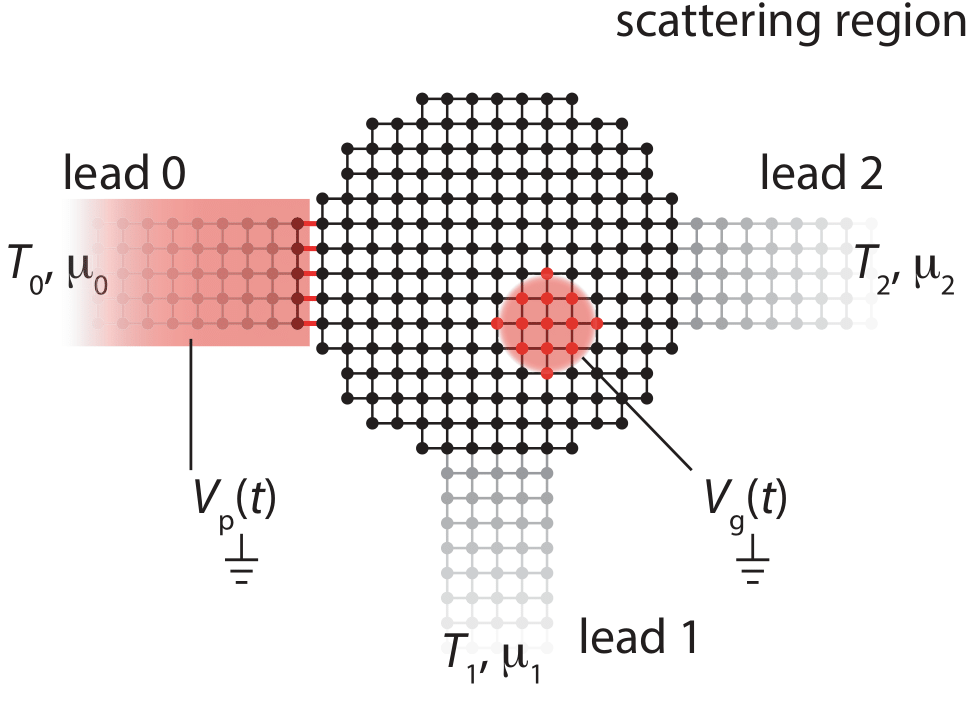2.1. Introduction¶
Tkwant is a Python package for the simulation of quantum nanoelectronics devices on which external time-dependent perturbations are applied. Tkwant is an extension of the Kwant package and can handle the same types of systems: discrete tight-binding like models that consist of an arbitrary central region connected to semi-infinite electrodes, also called leads. For such systems, tkwant provides algorithms to simulate the time-evolution of manybody expectation values, as e.g. densities and currents.

Sketch of a typical open quantum system which can be simulated with Tkwant. A central scattering region (in black) is connected to several leads (in grey). Each lead represents a translationally invariant, semi-infinite system in thermal equilibrium. Sites and hopping matrix elements are represented by dots and lines. The regions in red indicate a time-dependent perturbation, in this example a global voltage pulse \(V_p (t)\) on lead 0 and a time-dependent voltage \(V_g (t)\) on a gate inside the scattering region. The figure is taken from Ref. [1].¶
Input: A tight-binding Hamiltonian of generic form
as well as the chemical potential \(\mu\) and the temperature \(T\) in each lead.
Output: Time-dependent manybody expectation values, such as the electron density \(n_i(t) = \langle \hat{c}^\dagger_i \hat{c}_i \rangle\) an currents \(j_i(t) = i[\langle \hat{c}^\dagger_i \hat{c}_{i+1} \rangle - \langle \hat{c}^\dagger_{i+1} \hat{c}_{i} \rangle]\). We refer to Tkwant’s main paper Ref. [1] for the technical background.
2.1.1. References¶
[1] T. Kloss, J. Weston, B. Gaury, B. Rossignol, C. Groth and X. Waintal, Tkwant: a software package for time-dependent quantum transport, arXiv:2009.03132 [cond-mat.mes-hall].
